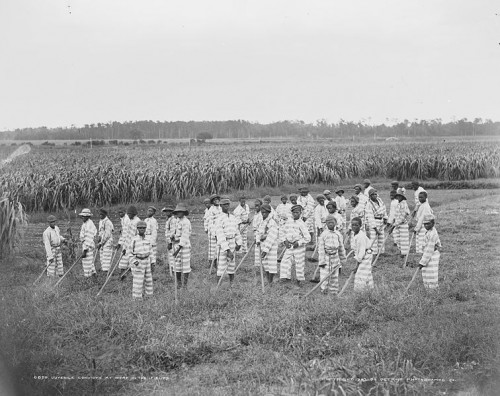Redeploy Illinois, a nine-year-old program Juvenile-Justice-Program that currently gives 42 counties via 12 sites across the state money to treat delinquent youths in their home communities instead of state prison facilities, has, since its inception, saved the state $60 million in incarceration costs. State Department of Juvenile Justice data show the average cost to house a youth at Illinois state facilities was $111,000 a year, while serving him or her through the Redeploy program cost $7,000. Department Secretary Michelle Saddler says the program “gives youth a second chance” at becoming law-abiding citizens.
Administered by the Bureau of Youth Intervention Services, Redeploy Illinois is designed to provide services to youth aged 13 to 18 who are at high risk of being committed to the Department of Corrections. A fiscal incentive is provided to counties to provide services to youth in the juvenile justice system by building a continuum of care for them within their home communities. Based on individual needs assessments, counties link youngsters to a wide array of needed services and supports within the home community, including case management, court advocacy, education assistance, individual/family/group counseling and crisis intervention.
Research has found that non-violent youth are less likely to become further involved in criminal behavior if they remain in their home communities and if appropriate services are available that address underlying needs such as mental illness, substance abuse, learning disabilities, unstable living arrangements and dysfunctional parenting. Unfortunately, many Illinois counties lack the resources to effectively serve delinquent youth locally, and this plays a significant role in the court’s decision to commit a youth to a correctional facility. Fortunately, the funds provided to the dozen Redeploy sites fills the gaps in their continuum of services, allowing them to cost-effectively serve youngsters in their home communities and reduce the system’s reliance on corrections. Redeploy Illinois has been hailed as a model for the nation in efforts to reduce cruel, inefficient and ineffective juvenile justice systems.
A study released in March of 2010 by the Justice Policy Institute, reported:
Redeploy Illinois is an example of the kind of program other states should embrace as a way to reduce prison costs and prevent young offenders from falling into futures dominated by criminal behavior and incarceration.
This progressive effort to build on the work done in other states such as Ohio and Pennsylvania, which successfully reduced juvenile incarceration rates through similarly structured programs, is paying off. Evidence increasingly supports the conclusion that Redeploy Illinois provides a significant return on investment in terms of financial and human resources. The Redeploy Illinois Annual Report presents data, analysis, and findings substantiating this claim. In financial terms, the average annual cost to serve a youth in the Redeploy program in 2013 was approximately 6% of the annual cost to house him or her in the Illinois Department of Juvenile Justice (IDJJ). In 2013 the average per-capita cost to house a youth at IDJJ was a reported $111,000. In 2013, 352 youth received full Redeploy Illinois program services, with an appropriation of $2,385,100. This equates to an annual Redeploy program cost per youth of $6,776.
In 2012, 238 fewer youth were committed to IDJJ because of the Redeploy Illinois program, saving Illinois taxpayers nearly $11.7 million. Through 2012, the Redeploy program has diverted 1,232 youth, saving the state a conservative $60 Million in unnecessary incarceration costs. From the human perspective, these 1,232 youth were given a second chance at becoming a contributing and law-abiding citizen of their respective communities. Beyond saving dollars, the program mends lives.
A commissioned report by Illinois State University found:
Parents and youth believe the program significantly improved family relationships, youth attitudes, communications with youth and offered opportunities for success. Youth coped with anger better, were more focused on positive goals and committed substantially fewer crimes. Further, probation staff, service providers and the judiciary all exhibited strong support for Redeploy Illinois.
An examination of the program’s first five years found that 73% of the 972 youth accepted into the program achieved a successful (66%) or neutral (7%) program discharge. Successful youth had a 27% lower recidivism rate than their unsuccessful counterparts. Of the 389 youth successfully completing the Redeploy Illinois Program, 61% of were not incarcerated during the three years following discharge from the program, compared to 34% of the unsuccessful youth. In addition, fewer than 13% of youth were terminated from the program because they had committed a new offense while in it.
More than 250 youths were served in the Restore Illinois program in 2013, but program officials fear budget cuts if the state’s income tax increase rolls back as scheduled in 2015.










